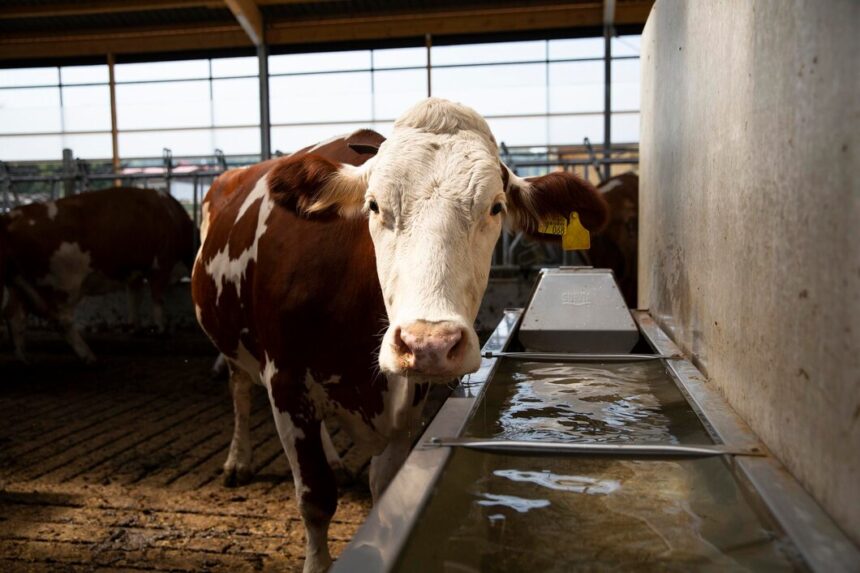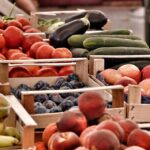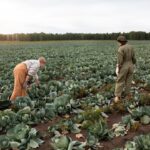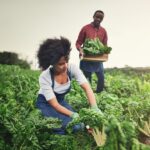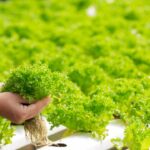Heat stress is a serious challenge for cattle farmers in South Africa, especially during the hot summer months when temperatures can soar above 35°C. When not managed properly, excessive heat can reduce productivity, lower milk yield, decrease weight gain, and even cause illness or death in extreme cases. With climate change intensifying weather patterns, preventing heat stress in cattle has become a critical concern for livestock farmers across the country.
Here’s how to protect your herd from heat-related stress and ensure your animals remain healthy and productive.
1. Provide Constant Access to Clean, Cool Water
Water is the most essential factor in regulating a cow’s body temperature. During hot weather, cattle can drink up to 80 litres of water per day. Ensure there are enough water troughs for all animals and check that they are clean and filled regularly.
If possible, shade water tanks to keep water cooler and more appealing to drink. Warm or stagnant water can discourage intake, increasing the risk of dehydration.
2. Offer Adequate Shade
Cattle need access to shaded areas throughout the day. Trees, shade cloth, or purpose-built shelters can reduce the impact of direct sunlight and lower ambient temperatures by several degrees.
Natural shade from trees is ideal, but in open grazing areas, erecting simple shade structures using poles and netting can be very effective. Aim for at least 3–5 square metres of shade per animal in high-traffic resting areas.
3. Adjust Feeding Times
Feeding generates body heat as cattle digest food, so it’s wise to avoid feeding during the hottest parts of the day. Shift major feeding to early morning and late afternoon or evening when temperatures are cooler.
This reduces internal heat load and encourages better feed intake, especially for lactating or growing animals that need to maintain a consistent diet.
4. Improve Ventilation in Housing
For housed or kraaled animals, ensure proper airflow to allow heat to escape. Open-sided shelters, roof vents, and elevated roofing can improve ventilation. Avoid overcrowding, which restricts movement and airflow, and raises temperatures quickly.
If feasible, install fans or misters in dairy parlours and feedlots to help cool animals during peak heat periods.
5. Monitor and Handle Animals Minimally
Limit stressful activities such as handling, transporting, vaccinating, or herding during hot hours. If these tasks are necessary, do them early in the morning or late in the evening.
Watch for signs of heat stress such as heavy panting, drooling, reduced feed intake, lethargy, and open-mouth breathing. In severe cases, animals may collapse or show signs of heat stroke.
6. Use Heat-Resilient Breeds and Crossbreeding
Some cattle breeds are more tolerant of heat than others. Indigenous breeds like Nguni, Bonsmara, and Afrikaner have better heat and tick resistance compared to some exotic breeds. If you’re in a particularly hot region, consider using heat-adapted genetics or crossbreeding programs to increase herd resilience.
7. Manage Grazing to Reduce Stress
Overgrazed pastures offer little shade and increase heat exposure. Rotate paddocks regularly and allow for rest periods so vegetation can regrow, providing cover and comfort for your herd. Supplement grazing with feed during drought conditions to maintain nutrition levels.
8. Plan for Emergency Cooling
On extremely hot days, have a backup plan. Use sprinklers or hoses to wet cattle if they appear distressed. Focus on wetting areas like the neck and back where blood vessels are closer to the surface. Never pour cold water on a severely heat-stressed animal, as this can cause shock. Gradual cooling is more effective.
Preventing heat stress in South African cattle is about proactive management and paying close attention to the weather and animal behaviour. With the right systems in place, you can protect your herd, maintain productivity, and reduce losses during the hot season. Healthy, well-cooled cattle are more comfortable—and more profitable—for your farming operation.
Join 'Farmers Mag' WhatsApp Channel
Get the latest Farming news and tips delivered straight to your WhatsApp
CLICK HERE TO JOIN
